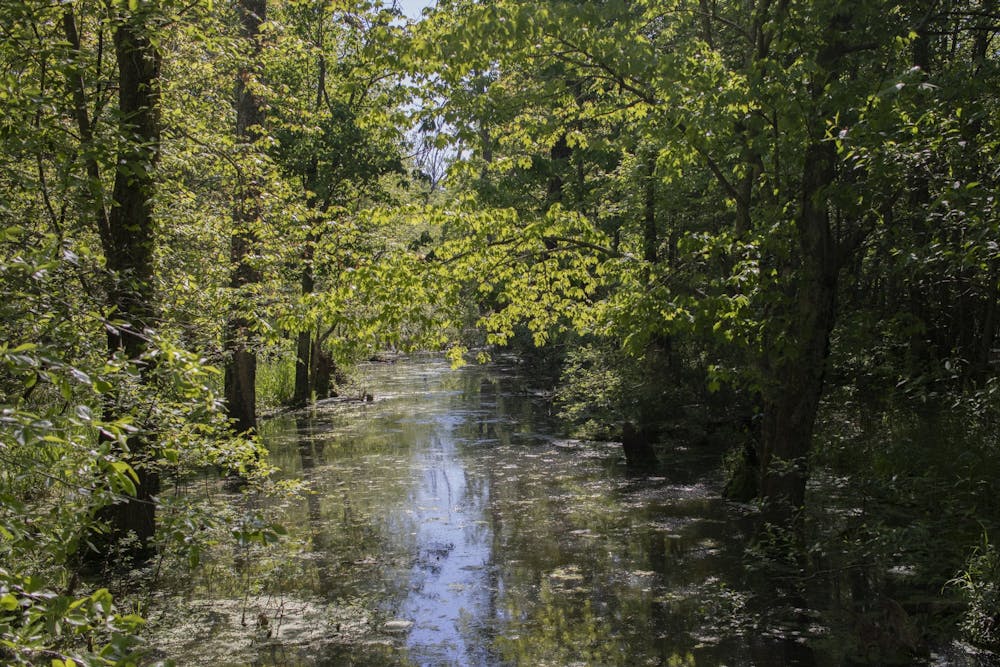The Indiana Senate passed Senate Bill 389 in early February. The bill originally removed protections for more than 80% of Indiana’s wetlands. It now heads to Gov. Eric Holcomb's desk in an amended form, but the message remains the same: Lawmakers continue to perpetuate a false dichotomy between environmental sustainability and economic prosperity.
Indiana had the opportunity to join 12 states with a market-based approach to greenhouse gas reduction with a bill to create a state-sponsored carbon market, which would let companies looking to reduce their carbon footprint pay for greenhouse gas reduction efforts in Indiana. Lawmakers also presented legislation to open the state up to renewable energy investments. Instead of capitalizing on proposals, which had bipartisan support, Indiana became an epicenter of controversial environmental legislation.
Senate Bill 373 seeks to create a voluntary carbon market in Indiana where companies purchase carbon credits to offset their emissions. In its original form, the bill enjoyed support from environmental advocacy groups for launching sustainable market practices in the state.
However, lawmakers amended the bill to include legal protections for Wabash Valley Resources LLC, an Indiana company slated to undertake the largest carbon dioxide storage project in the U.S. The amendment protects the firm from lawsuits if underground emissions move beyond a designated area unless physical damage can be proven. Although the long-term effects of carbon sequestration require further research, environmental groups warn the project could trigger seismic activity as the facility sits on top of Wabash Valley seismic zone, a tectonic hot-spot along the Wabash river.
House Bill 1381 attempted to create statewide standards for solar and wind projects that supersede county ordinances. In Indiana, 34 of 92 counties have ordinances that either restrict or prohibit solar and wind projects. Companies cite the state’s inconsistent laws as reason to fear their project might be blocked at the last minute, disincentivizing investment in renewable energy in the Hoosier state. Indiana is losing out on potentially millions in renewable energy investments. The Senate Utilities Committee amended the bill to grandfather in all ordinances passed before July 2021. The bill died in the Senate last week after one sponsor withdrew the proposal.
Holcomb faces a critical decision with SB 389 to deregulate wetlands. A veto would send a message to legislators to exercise greater caution with regard to environmental deregulation.
Wetlands in Indiana are subject to a classification system: Class I is heavily disturbed by human activity, Class III is isolated and Class II do not fit the requisites of Class I or III. SB 389 in its amended form removes protections for all Class I wetlands and some Class II wetlands. Class I wetlands account for 58% of wetlands and together, Class I and II wetlands make up 99% of Indiana’s wetlands. The bill puts more than 400,000 acres at risk.
Other amendments include retroactively applying the legislation to Jan. 1, 2021, instead of July 1, and generating a task force with the purpose of wetland research. The task force requires the bill to first become effective, risking irreparable harm before recommendations can be made.
Holcomb commented on the bill in February, calling it a cause for concern.
“We need to be confident that any changes in the law avoid harming drinking water quality, increasing potential for flooding, or hurting wildlife habitats used by our anglers and hunters,” Holcomb said.
The bill passed the House of Representatives by a vote of 58-40 and the Senate by a vote of 31-19, making it likely that the General Assembly will override a potential veto by Holcomb with a constitutional majority. Nevertheless, staunch opposition from the governor could redirect the tone of environmental debate moving forward.
The General Assembly not only shows contempt for environmental sustainability, but it routinely undermines the simplest conservation efforts. Indiana legislators play a key role in maintaining a decorum that is out of touch with our current environmental reality.
Katelyn Balakir (she/her) is studying policy analysis and world political systems. She is a member of Indiana Model United Nations.






